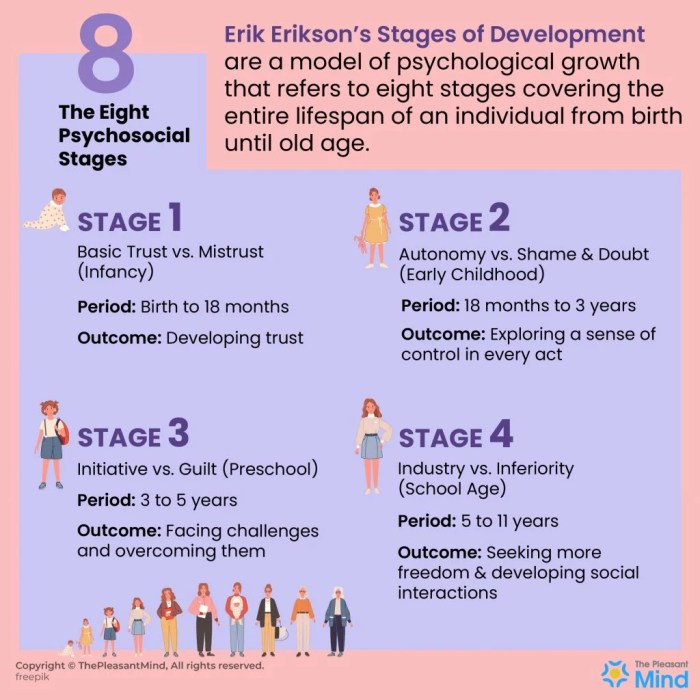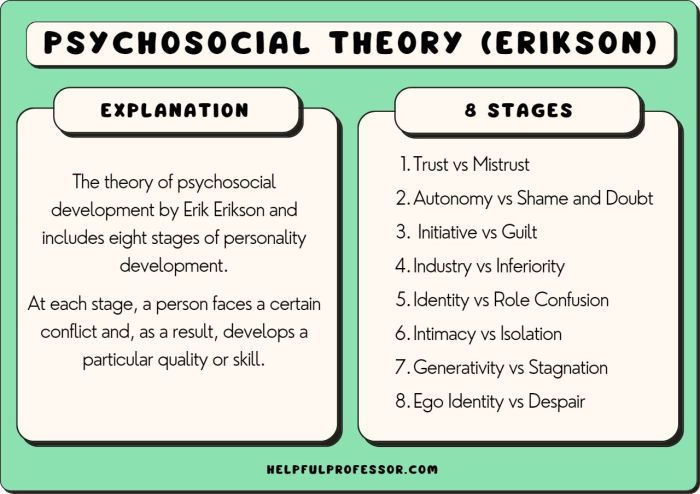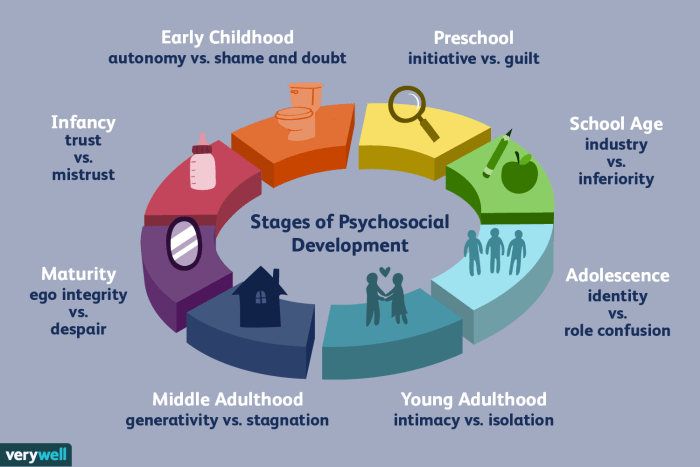Development through life a psychosocial approach 13th edition – Embark on a journey through human development with “Development Through Life: A Psychosocial Approach, 13th Edition.” This comprehensive text delves into the intricate stages of psychosocial, cognitive, moral, social, emotional, and physical development, providing a profound understanding of human growth from infancy to old age.
Through the lens of renowned theorists such as Erikson, Piaget, Kohlberg, and others, this book unravels the complexities of human development, exploring the interplay of biological, psychological, social, and cultural factors that shape our lives.
Erikson’s Stages of Psychosocial Development: Development Through Life A Psychosocial Approach 13th Edition

Erikson’s theory of psychosocial development proposes that individuals progress through eight stages throughout their lifespan, each characterized by a specific conflict that must be resolved.
Infancy (Birth to 18 Months): Trust vs. Mistrust
* Conflict: Developing a sense of trust in caregivers and the world.
Outcome
Trust or mistrust.
Early Childhood (18 Months to 3 Years): Autonomy vs. Shame and Doubt
* Conflict: Gaining a sense of autonomy and independence.
Outcome
Autonomy or shame and doubt.
Preschool (3 to 6 Years): Initiative vs. Guilt
* Conflict: Taking initiative and exploring new activities.
Outcome
Initiative or guilt.
School Age (6 to 12 Years): Industry vs. Inferiority
* Conflict: Developing a sense of competence and industry.
Outcome
Industry or inferiority.
Adolescence (12 to 18 Years): Identity vs. Role Confusion
* Conflict: Establishing a sense of identity and purpose.
Outcome
Identity or role confusion.
Young Adulthood (18 to 30 Years): Intimacy vs. Isolation
* Conflict: Forming intimate relationships.
Outcome
Intimacy or isolation.
Middle Adulthood (30 to 60 Years): Generativity vs. Stagnation
* Conflict: Contributing to society and future generations.
Outcome
Generativity or stagnation.
Late Adulthood (60 Years and Older): Integrity vs. Despair, Development through life a psychosocial approach 13th edition
* Conflict: Reflecting on life and accepting its end.
Outcome
Integrity or despair.Culture and society influence the resolution of each stage, shaping the individual’s values, beliefs, and behaviors.
Detailed FAQs
What is Erikson’s theory of psychosocial development?
Erikson’s theory posits that individuals progress through eight stages of psychosocial development throughout their lifespan, each characterized by a specific conflict that must be resolved for healthy development.
How does Piaget’s theory of cognitive development explain the development of intelligence?
Piaget’s theory suggests that cognitive abilities develop through a series of distinct stages, from sensorimotor to formal operational, as individuals actively interact with their environment and construct their understanding of the world.
What is Kohlberg’s theory of moral development?
Kohlberg’s theory proposes that moral reasoning progresses through six stages, from pre-conventional to post-conventional, as individuals develop their understanding of right and wrong.

